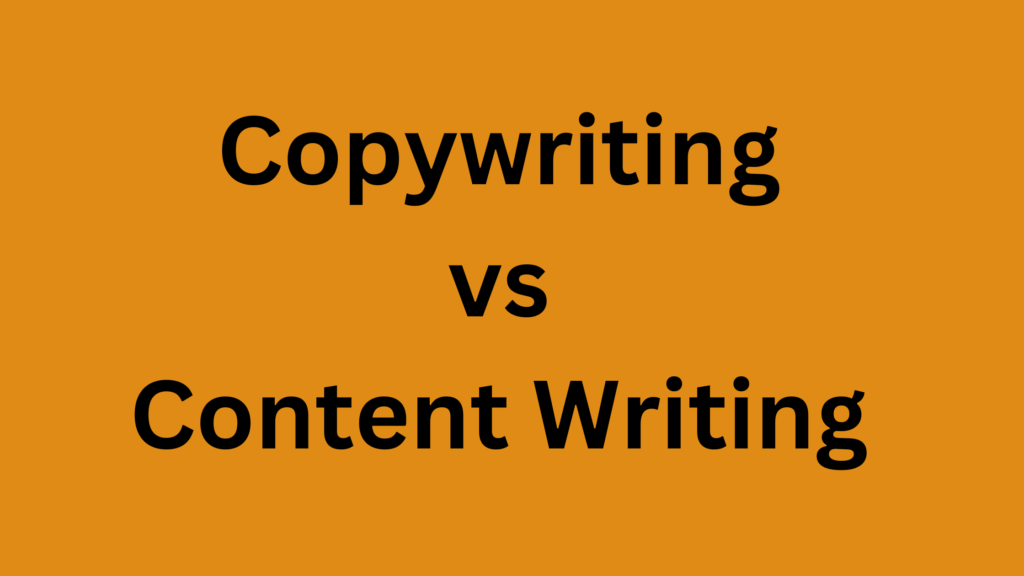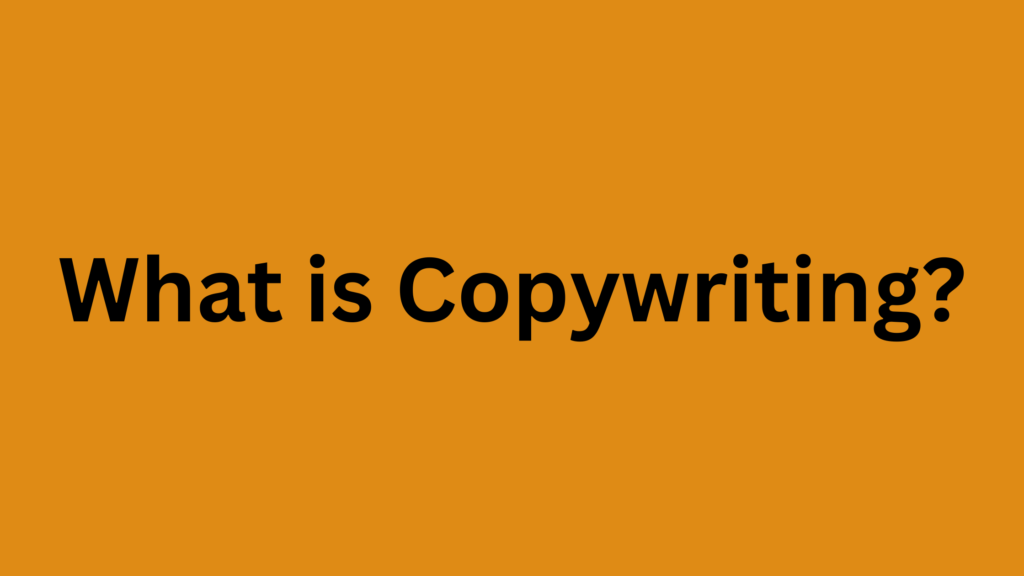”Copywriting vs Content Writing”: You’ve probably heard these two terms being thrown around for like a million times now. But do they mean the same or what’s the difference? Copywriting and Content writing are actually two different terms, and they don’t mean the same. So, what’s the difference between Copywriting vs Content Writing?
Related: Top 5 Copywriting Books to Start Earning from Home
Copywriting vs Content Writing Explained
At first glance, you might think all marketing-related writing is the same. However, delve deeper, and you’ll discover distinct differences in their core purposes. Copywriting is more about persuasion. When you need your audience to take swift action—whether that’s clicking through to a webpage, completing a purchase, or joining your mailing list—you need compelling copy that converts. Consider it the essential ingredient in your marketing mix that drives people to act.
Content writing, conversely, focuses on establishing credibility and delivering genuine value. When you’re reading an in-depth blog post, educational article, or comprehensive guide, you’re engaging with content writing. Its primary objective isn’t immediate sales conversion but rather to educate, engage, or inform. You might not find an explicit call-to-action in every piece, but by delivering worthwhile information, you’re cultivating a meaningful connection with your audience. When people trust your brand, they’re naturally more inclined to become customers down the line.
Therefore, when crafting your marketing approach, remember: copywriting drives immediate conversions, whilst content writing cultivates the enduring relationships essential for business growth.
Copywriting vs Content Writing Examples
Let’s bring these ideas to life with some Copywriting vs Content writing examples that you can relate to. Imagine you’re scrolling through your favorite social media feed. When you see a short, snappy headline urging you to “Shop Now” or “Get 50% Off Today,” that’s copywriting at work. The message is brief, impactful, and designed to trigger an immediate response. You know exactly what to do next because the copy has been crafted to push you toward a sale.
Now, think about when you click on a blog post to learn more about a topic that interests you. You’re not immediately asked to make a purchase; instead, you get a well-researched, in-depth article that educates you about a subject. This is content writing. It might include detailed explanations, personal stories, or expert advice that helps you solve a problem or learn something new. Over time, these valuable insights build your trust in the brand, making you more receptive to their offers later.
For instance, if you run an e-commerce store, you might use content writing to maintain a blog that offers tips and tutorials related to your products. Then, when you need to promote a new product line, you switch gears and employ copywriting for targeted ads and landing pages. By blending both styles, you ensure that you’re not only driving sales but also nurturing long-term customer relationships.
Can You Be a Copywriter and Content Writer?
You might be wondering: Can you be a copywriter and content writer at the same time? The answer is yes! Many successful marketers and writers wear both hats. However, each skill set requires its own approach and mindset.
If you’re naturally persuasive and enjoy crafting compelling calls-to-action, you might find copywriting comes easily to you. It demands that you think in terms of immediate impact—every word counts and must drive your reader toward a clear action. You need to understand your audience’s pain points and desires, and then use that knowledge to craft a message that resonates instantly.
At the same time, if you love diving deep into topics, researching thoroughly, and sharing valuable insights, content writing might be your strong suit. It’s less about quick wins and more about building a narrative that educates and informs over the long haul. You get to explore topics in detail and create evergreen content that continuously provides value to your readers.
Many professionals successfully blend both skills. You might start your day writing an informative blog post and later switch to crafting a persuasive email campaign. The key is understanding when to use each approach. If you can learn to adapt your writing style depending on your goal, you can offer a well-rounded service that covers all aspects of digital marketing.
For you, being proficient in both areas can mean greater career flexibility and the ability to tackle a wider range of projects. It also means that if you ever want to transition or expand your services, you already have the foundation to do so.
Copywriter vs Content Writer Salary
Now, let’s talk money—because, after all, you want to know what’s in it for you, right? Copywriter vs Content writer Salary: what pays more? The truth is, the answer can depend on several factors such as experience, industry, and geographic location.
Generally speaking, copywriting tends to command higher pay because it directly drives revenue. When you create persuasive copy that converts, your work has an immediate impact on a company’s bottom line. Employers and clients are often willing to pay a premium for someone who can reliably increase sales, leads, or sign-ups. That means if you’re excellent at crafting persuasive messages that push customers to take action, you could see a higher salary or command better freelance rates.
Content writing, while sometimes paid slightly less, offers its own advantages. Its value lies in building long-term brand authority and trust, which might not result in immediate sales but can be incredibly valuable over time. If you become an expert in content marketing and SEO, you can also command competitive salaries—especially if you develop a niche expertise or build a strong portfolio of high-ranking articles.
It’s important to note that these roles often overlap. Many successful writers are fluent in both, and the market is evolving to value versatility. So, if you invest in developing skills in both copywriting and content writing, you’ll not only become more valuable to potential employers and clients but also have the flexibility to negotiate better rates and salaries based on the specific demands of your projects.
For you, deciding which path to focus on might come down to your personal strengths and career goals. Do you thrive on the immediate gratification of a conversion, or do you enjoy the deep dive into topics that build lasting relationships with an audience? Either way, both paths offer solid earning potential, and the best option might even be to master both.
Enjoyed the content?
Want help with copywriting/content writing for your online business? Visit: www.iwritetosell.com and let’s talk!



